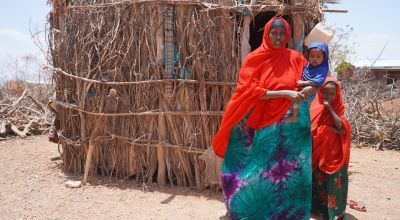
Read our 2023 annual report

Knowledge Hub
Ireland’s diplomatic mission to the United Nations in Geneva has been leading an important global process since late 2019 to develop a political declaration that aims to reduce the humanitarian consequences of explosive weapons when conflict takes place in populated areas.
Despite unwelcome delays due to the COVID-19 pandemic, Ireland looks set to finalise the text in the coming weeks and will be hoping for a considerable number of UN Member States to join the declaration and pledge to implement its commitments.
We need only look at our television screens to clearly see the devastating damage caused by explosive weapons, especially when they are used in places where many people live. Civilian harm is caused by many types of weapons, but the current conflict in Ukraine is a prime example, on top of many other conflicts around the world, of the effects on cities and towns when shells, missiles, mortars, improvised explosive devices, and similar explosive weapons are used.
Homes destroyed, families torn apart, essential infrastructure such as hospitals, schools, and markets rendered useless. Even when aimed at a military target, such weapons can cause untold and long-lasting harm to communities.
One way that children, women, and men suffer from indirect or reverberating, long-term effects is if sources of food, water, and other basic needs and essential services are damaged or destroyed.
Reducing the impact of explosive weapons on food security is a key priority for Concern Worldwide, which is why, through our ongoing campaign Nothing Kills Like Hunger, we called on Ireland to ensure that the declaration highlighted this critical issue.

Although Ireland’s declaration will not be legally binding, there is reason to hope that, if military powers commit to avoid the use of explosive weapons in populated areas in the future, fewer people will suffer death, injury, and other, less direct effects, that include long-term distress and psychological trauma. This commitment is needed now more than ever before.
Other political declarations have made a difference, when the states that signed them went on to implement the commitments. For example, the Safe Schools Declaration, now endorsed by 114 states, has given rise to a strong network of implementing states. Countries affected by conflict that have endorsed the Safe Schools Declaration have seen a reduction in military use of schools. Ireland was among the first to sign in 2015.
I attended a recent round of consultations in Geneva, where diplomats, UN representatives, the International Committee of the Red Cross, and civil society met to discuss the latest draft. Much of the debate was focused on the central commitment, to either “restrict”, “refrain from”, or “avoid” the use of explosive weapons in populated areas when they have wide area effects.
The United Nations, International Network on Explosive Weapons, and many other organisations called on states to commit to the strongest of the options – that states should commit to “avoid” the use of heavy explosive weapons in populated areas. Some strong military powers have sought to lower the level of ambition by calling for weaker language. This risks undermining the added value of the declaration, which should ideally call on states to make political commitments to protect civilians that may not be required by the Geneva Conventions and existing humanitarian law.

Nonetheless, the meeting closed on an optimistic note with what appeared to be a genuine spirit of cooperation. There was convergence on operative and humanitarian commitments to help communities that have already been affected by use of explosive weapons.
Overall, those at the meeting showed a desire to make a meaningful difference for people at the centre of the initiative – those living in conflict-affected countries where the use of explosive weapons threatens their lives, livelihoods, and wellbeing.
As we near the end of this international process, Ireland must maintain its ambition and deliver a strong declaration that, when implemented, will protect people from the worst effects of war.





